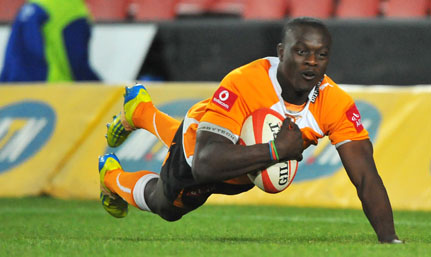|

|
|
Raymond Rhule
Photo: Gallo Images
31 October 2012
|
We can add yet another name to our already impressive list of Springbok rugby players. Raymond Rhule has been included by Heyneke Meyer as one of five uncapped players for the Springboks’ upcoming European tour.
The nod from the selectors caps a tremendous year for the Ghanaian-born star. The former Technical High School Louis Botha pupil and current UFS student rose through the South African rugby ranks at a rate which can only be described as spectacular.
He was part of the Shimla team which competed in this year’s under-20 and senior Varsity Cups that culminated in inclusion in the victorious South African team at the under-20 World Cup.
Since then, he has been a fixture in the Free State Cheetah team in both the Vodacom Cup and the premier local rugby competition, the ABSA Currie Cup, gaining praise for his performance from the public and rugby experts along the way.
The 19-year-old wing has been the stand-out performer for a troubled Free State Cheetahs outfit, who had to see off the Eastern Province Kings in relegation playoffs to stay in the top division of the ABSA Currie Cup.
In an impressive season, Rhule scored eight tries, earning him the spot as the competition’s top try scorer.
Among a raft of awards, Rhule was announced as the UFS Junior Sportsman of the year for 2012 in October and has been nominated as the South African Rugby Union’s (Saru) Young Player of the Year.